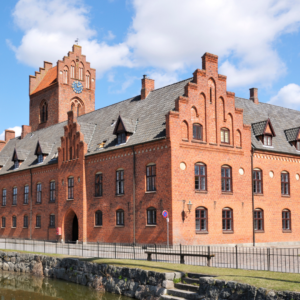A Guide For Monaco Parents To Choosing A British School – What’s The Box That You Need To Think Outside Of?
A Guide For Monaco Parents To Choosing A British School - What’s The Box That You Need To Think Outside Of?
By David Wellesley Wesley

Location
Behind their Victorian Gothic facades, Britain’s boarding schools are blessed with remarkable diversity, a focus on excellence, but also on kindness and humility. These schools are dotted throughout the Kingdom so include schools on your shortlist that are beyond 50 miles of London. They are not at all difficult to reach, particularly through regional airports and trains. A few extra hours of travel to and from school is a price worth paying. Do not see any value whatsoever in being close to London for weekends out from school to be spent in the city. Weekends at school are full of activities; and are when friendships are made.
Most of the great treasures are a little harder to reach but often offer unusual opportunities that the big-name schools near London cannot. Think boarding houses for horses; large tracks of woodland within the school grounds; access to mountain biking at weekends; open sea sailing; small rural towns to visit for local shopping and at weekends. And the further from London one ventures, the fast, materialistic, and not particularly education conducive environment is left behind.
You are not the pupil!
Twenty years plus of talking to parents around the world and watching far wiser educationists than I repeat the same mantra, have confirmed my view that some choices parents make for their children are utterly wrong. You might be paying the bill but you are not the end-user. Question your motives: are you choosing a school for your child without allowing too much of your own desires to impinge? There is no best school; there are only schools that are right for your child. Be invested in the school, of course. Visit your shortlisted schools with your children initially if time permits. You will observe how your child responds to the teachers and environments. Try and see your child’s eyes observing the school; then try to imagine how it looks to them. A feature or person that is reassuring, exciting, and impressive to a child is often missed by parents all together because they are too busy looking for cracks in the paintwork, or marks on the carpet.
Name and Notoriety
Big names in boarding bring big brand vibes and brandish their inestimable history by their mere existence. The United Kingdom boasts around 500 boarding schools. Perhaps no more than a dozen of those are well-known names in the UK and a mere handful of those enjoy global renown. As deserving of their reputations as they may be, their fame mostly originated due to their proximity to London or the Court. Critically, universities will note that your child has been privately educated, but going to one of the more well known schools makes absolutely no difference to an application whatsoever. And are these so-called ‘top’ schools the right ones for your child as an individual learner?
The fact that you haven’t heard of a particular school is no reason at all to doubt its suitability for your child nor the remarkable education and array of opportunities, or glorious campus settings it offers. Be bold in your selection, visit, research, explore, and make up your own minds. Hard as it may be, try and block out ‘the noise’ from other parents around you. I have yet to meet a parent who will openly put you off a school where they have placed their own. Common sense in school selection is perhaps the most profoundly powerful tool at a parent’s disposal. Use it.

The Parental Community
Schools cannot do much more than reflect the values of the parents that send their children to them.
Private tours of schools are not always available at short notice. Please don’t decline an open day, because it may be preferable to a private tour. We all have private thoughts about the individuals and families that we might wish our children to be surrounded and inspired by. An open day or group tour will provide an often disregarded insight into the institution you are considering.
Chat to other hopeful parents, share stories, look for common ground. If you feel you might fit in with them, chances are your children will fit in with theirs and so forth. All of this will promote the likeliness of your entire family getting the most out of your child’s time boarding and at its best create lasting friendships for you all. And use the opportunity of not being so closely watched, to linger at notice boards, look into classrooms, observe the way children are going about their day…
Reality
No boarding school is right for every child and what a dull world it would be; what a dull job I would have to boot. Square pegs, round holes and all that. But what can one expect from a school that is right for your child?
Manage your own expectations first.
Schools do not make less academically-inclined students into vaccine discovering research scientists, no more than they will transform pupils disinterested in sport into Olympians. And no school will supply everything a child needs.
When those needs are great, there may not be a right school until they have been addressed. A troublesome teenager, with no motivation, dire concentration, possibly an addiction to screen-based activity and a lack of basic academic skills is not going to be ‘fixed’ by any school. Children must only go to board when they can be trusted to take value from the school. Parents are surrendering control, after all, to a houseparent who will have another sixtyish boys and probably his own young family to look after. If your child needs close supervision and one to one mentoring to find success, boarding school might need to wait.
At their best, boarding schools draw out the potential from your children, unlocking intrinsic motivation you never knew existed; independence of thought and study; and simply being able to keep their room tidy and their work organised - they learn how to look after themselves. They may flourish in a friendship group that persists for the rest of their lives. They may find a level of academic competition, or high standards in the arts, sports or community work that propels them to new highs. They may find quality of teaching that simply does not exist at their local schools.
Rome was not build in a day - immediate results will be apparent but deep seated behavioural change takes time. Ask not what the school will do for your child, but what your child will do for the school, because schools are limited in what they can achieve without fired up, intrinsic motivation to work with - motivation that has to come from the child. They will still discover the odd hidden talent or two and provide the setting for your children to safely try to acquire new skills. Almost certainly, they will improve resilience, confidence and communication skills. Nevertheless, be realistic in your expectations.

More often than not in a certain subject or activity, your child will fail. Learning the importance of failure and the art of finding success is not a timetabled lesson, but it is a long term cultural imperative that great boarding schools bestow on their residents. These schools celebrate failure - especially if it is amateur or service based - to heroic extremes. Inventiveness is nigh impossible if failure is feared. And, inventiveness has a long history at British boarding schools; most of the great team sports were invented on their fields or against their walls.
‘There are lies, damned lies and statistics’ (Sir Winston Churchill)
League tables and statistics: these are mainly irrelevant and misleading. Education simply cannot be measured in numerical terms. Provided you choose a school where there is at least one top set where all the pupils will secure top grades and head to Oxbridge or a top five university in Britain (or top 20 in the USA), the academic opportunity is there. Being educated only with children who share a standard cognitive profile and are fast readers with relatively high IQs is possibly profoundly ill-advised, being an unsympathetic, regressive way to prepare for an employment environment where visual, possibly dyslexic but fluidly intelligent thinkers are as valuable to a bank as a mathematical mind; and scientists will increasingly cross over to more artistic fields of endeavour. Look instead to the value added measures. A school that is four times as easy to gain admission to than a supposed academic powerhouse, quite often has significantly higher entrance rates to Oxbridge - go figure.
Instead of chasing contrived elitism that has become a danger to itself, try and enjoy the process of visiting some beautiful schools, where you will be revitalised just from being there for a day. Don’t worry about getting in. If it’s not that school that will take your child, there are plenty of others that will, which will also be as impressive and suitable. Stay calm, observe, and do not for a moment worry about entrance tests or admissions criteria. The process can be enjoyable.
Author: David Wellesley Wesley - Founder and Managing Director - Next Step Education Limited incorporating Bonas MacFarlane and the Independent Schools Show.


